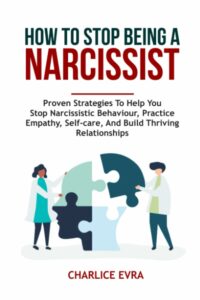Narcissism vs Vanity: The Differences!
Narcissism and vanity, often used interchangeably, represent distinct aspects of personality that can significantly impact an individual’s self-help journey.
Narcissism, rooted in the Greek myth of Narcissus, involves an exaggerated sense of self-importance, a preoccupation with fantasies of unlimited success, and a lack of empathy for others. In the realm of self-help, recognizing narcissistic traits is crucial for fostering healthier relationships and promoting personal growth.
Individuals with narcissistic tendencies often display a grandiose sense of self, seeking constant admiration and validation.
Self-help strategies for dealing with narcissism include fostering self-awareness, developing empathy, and cultivating a realistic self-image. Encouraging individuals to explore the root causes of their narcissistic traits can be a stepping stone towards positive change.
Furthermore, establishing healthy boundaries is key when dealing with narcissistic individuals. Encouraging open communication and asserting personal limits can contribute to a more balanced dynamic. Recognizing that narcissism exists on a spectrum and that self-enhancement can coexist with empathy allows for a nuanced approach in the pursuit of personal development.
Decoding Vanity

Vanity, although often associated with narcissism, is a distinct quality that revolves around excessive admiration of one’s physical appearance or achievements.
In self-help discussions, understanding vanity is essential for individuals striving for genuine self-improvement and a healthy self-image. Unlike narcissism, vanity focuses more on external attributes than an overarching sense of superiority.
Individuals with vanity may obsess over their appearance, social status, or material possessions, seeking validation through external means.
Self-help strategies for addressing vanity include promoting self-acceptance, encouraging a realistic view of one’s attributes, and fostering internal sources of validation.
Emphasizing the importance of cultivating inner qualities and recognizing the impermanence of external factors can guide individuals away from the pitfalls of excessive vanity.
Moreover, self-help resources can assist individuals in building a foundation of self-worth based on intrinsic values rather than external validation.
By encouraging a mindset of self-compassion and emphasizing the fluidity of external attributes, individuals can navigate the complexities of vanity and embark on a journey of authentic self-discovery.
Finding Balance: Navigating Narcissism and Vanity
Recognizing the distinctions between narcissism and vanity is crucial for individuals seeking self-help and personal growth.
While narcissism involves an overarching sense of superiority and lack of empathy, vanity focuses on external appearances and achievements. Navigating these traits requires a balanced approach fostering self-awareness, empathy, and a realistic self-image.
Self-help strategies guide individuals in establishing clear boundaries when dealing with narcissistic individuals, promoting open communication, and cultivating empathy.
Recognizing the potential for personal growth within the spectrum of narcissism allows for a more compassionate and nuanced approach.
Simultaneously, addressing vanity involves fostering self-acceptance, recognizing the impermanence of external attributes, and building a foundation of self-worth based on intrinsic values.
Remember, the journey towards self-help involves embracing authenticity and continuous self-improvement. By navigating the complexities of narcissism and vanity with intention and self-reflection, individuals can cultivate a healthy sense of self and foster fulfilling relationships.
Conclusion
Navigating narcissism and vanity in the realm of self-help requires a nuanced understanding of these distinct yet interconnected qualities.
By fostering self-awareness, empathy, and a realistic self-image, individuals can overcome the challenges posed by narcissism and vanity. Remember, the path to self-help is a continuous process, and each step taken toward genuine self-improvement is a triumph worth celebrating.

Want to Stop Being a Narcissist?
Get "How to Stop Being a Narcissist" and join hundreds of others crushing narcissism and developing their interpersonal skills.
Learn Everything: Causes and Symptoms of Narcissism > Strategies to Solve Narcissism/em> > How to Create Healthy Relationships.
This book has positive reviews. REVIEWS FROM REAL BUYERS. LOTS OF COPY SOLD. CHEAP!
Get the Book Here